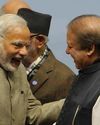How blockchain technology and cryptocurrency can make the goods and services tax system simpler, quicker and safer.

BITCOIN IS THE rage. With an unbelievable appreciation in prices, many people want to invest in this red-hot cryptocurrency, but whether the current valuation is a bubble that will burst is an open question. What is indisputable, however, is the immense versatility of the blockchain technology that is used in bitcoin — and all cryptocurrencies. The goods and services tax (GST) too is the rage, or rather the cause of rage because of the inefficiency of the software implementation. This article explains how a decentralised blockchain application could solve GST problems.
But, first, what is a bitcoin? A bitcoin is a unit of value, like an equity share of a company, that can be owned and transferred. It resides in an account in a ledger, like a dematerialised share in a demat account with the National Securities Depository Ltd (NSDL). The account number, the public key of the account, is known to all and so anyone can send or deposit demat shares into this account. However, to sell or transfer shares out of this account, the anonymous account holder must use a password, a private key that only he knows, to create and publish an outbound transaction pointing to another account identified by its public key.
This story is from the October 2017 edition of Swarajya Mag.
Start your 7-day Magzter GOLD free trial to access thousands of curated premium stories, and 9,000+ magazines and newspapers.
Already a subscriber ? Sign In
This story is from the October 2017 edition of Swarajya Mag.
Start your 7-day Magzter GOLD free trial to access thousands of curated premium stories, and 9,000+ magazines and newspapers.
Already a subscriber? Sign In

Refuging Progess
There is a well-orchestrated global conspiracy to deny scientific and technological developments from the West to Third World countries.

The Monk Of Science
Vivekananda believed that Religion should be subjected to scientific methods of investigation. The third and concluding part of our series on the Swami and his views on science.
The Next Step
Indian technical manpower can be trained for high-value-added emerging services in the era of mass commoditisation of hardware.
The Threat Of Autarchy
The force of globalisation is an irreversible reality, and it is countries like India and China that will nurture it going forward.

Neanderthals: The Womb Of Caves
Recent discoveries indicate that Neanderthals may have had a rich inner life, including symbolic thought. Indeed, they may have been the progenitors of human religions.

Getting India's World Right
Incremental concessions will get India nowhere with Pakistan and China. What we need is a classically conservative foreign policy, based on realism.

The Hesitant Orbit
In order to march boldly ahead into the deep space, New Delhi must work towards building a station, boost its techno-economic planning and use the Indian Space Research Organisation smartly.

Nudges And Narratives
The debate surrounding Sanjay Leela Bhansali’s Padmavati brings India a complex network of portraits within a cultural world-system.

The Spell Of Specialisation
THE INDIAN ADMINISTRATIVE SERVICE NEEDS AN URGENT REJIG. THE KEY TO SPEED AND EFFICIENCY LIES IN PUTTING AN END TO A GENERALIST APPROACH AND IN GOING FOR A NEW SERVICE.
The Great Gamble
With demonetisation, the prime minister has taken a huge risk— both economic and political. He must succeed, because this move could transform both our economy and our society.